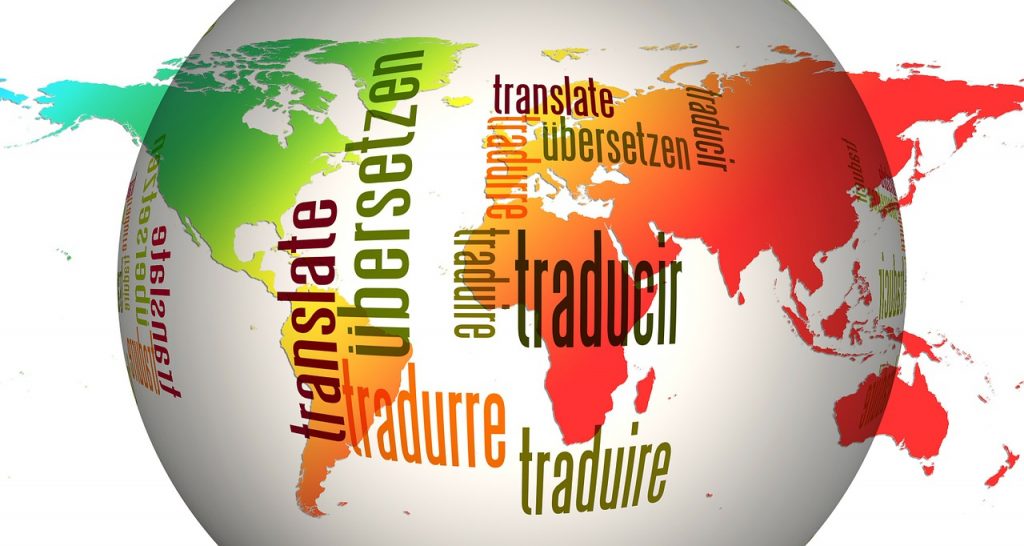
Why is it important to know more languages?
Anyone can learn as many languages as they want, and this can only be achieved with effort and perseverance. Knowing more languages offers you

When starting to learn a language, it is difficult to avoid translating vocabulary. Indeed, not knowing what a word means is a problem that has to be solved somehow, and the quickest way to do this is through translation. However, translating the language you are studying will not help you learn it, do you want to know why? Today we explain it to you.
In some situations, it is possible to translate certain simple sentences word for word, as the meaning will be the same. However, in more complex sentences, the meaning of the translation may change drastically.
In that sense, the communication could not be clear, but misconstrued. These are just some of the reasons why we recommend you not to translate the language. However, below are some of the reasons why, far from being a benefit, translating the language may actually slow down the learning process.

The language you are studying (also called the target language) is completely different from your native language. Indeed, each language has particular features that make it unique among others.
This is because languages are shaped by particular cultural norms and contexts. Therefore, it is ideal to treat each one in a unique way. Learning and mastering a foreign language goes beyond simple translation.

Thus, instead of spending time on translation, it is more useful to find out how certain expressions and words are used in specific situations.
Many beginners resort to translation: they think in their native language and then translate those thoughts into the target language. This does not provide any advantage in the learning process under any circumstances, unless it is a matter of knowing the meaning of an unfamiliar term.
Ideally, you should strive to think directly in your target language, and develop the ability to respond immediately, as if spontaneously in that language to a variety of real-life situations.
Here are a number of reasons why it is useful to start from scratch rather than translating the target language:
Mobile translation apps are useful for learners who are completely unfamiliar with the language. It is also useful for those who need to clarify the meaning of a term from time to time. However, it is not at all practical when translating entire conversations, as it would be uncomfortable for the speaker.
Moreover, even if you have the ability to memorise a long list of translated words, the time it would take you to think of a word in your native language and translate it into the target language would not allow you to maintain a fluent conversation.
As we have already said, every language is unique. Word order in a sentence and verb tenses are just some of the features that differentiate one language from another. Moreover, even if some languages come from similar roots, they will always have unique expressions, as well as terms with different meanings.
This makes it clear that the use of translation Apps is not effective, as translation is done literally and term by term. As a consequence, this affects the meaning of sentences when they are long and unique.
This disadvantage of translating a language is related to the two reasons explained above. Without translating sentences in your mind or using an app to translate your conversations, you will never be able to express yourself and communicate spontaneously in your target language.

This is because, by translating the language, the flow of conversation will be truncated and, as a consequence, effective communication with other people will not be possible. Keep in mind that effective language learning comes from linguistic immersion, that means you have to think in the target language.
This will make it easier for you to converse and discover ways of expressing yourself spontaneously in everyday life. This is much more effective than trying to memorise hundreds of words strictly related to your native language.
Finally, we recommend you to think differently. Every language is unique and should be treated as such. To achieve your goals and master the new language, you should ideally try to think in the target language whenever you can.

Anyone can learn as many languages as they want, and this can only be achieved with effort and perseverance. Knowing more languages offers you

Learning a language is more than knowledge, it is a personal challenge. Because learning a language provides us with the basic tools to develop

Languages are an elementary basis for communication in today’s world. That is why they are necessary for our education, allowing us to experience endless
Italian, alongside English and French, is one of the most popular languages when it comes to choosing a language for further studies. Teaching techniques
Reserva tu Clase de Prueba Gratis
English Placement test
Select the correct answer. Then, write a short text choosing one of the two options.
Test di italiano
Scegli la risposta corretta. Successivamente, scegli un tema per una breve composizione scritta.
Test de español
Escoge la respuesta correcta. Sucesivamente, escoge un tema para escribir un breve texto.
Book Your Free Trial Lesson